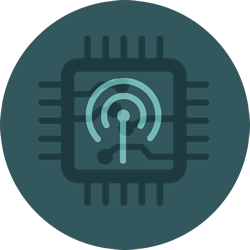With all the hype and “buzzwords” flying around, we thought we would give you a list to make sure you know what you are getting yourself into and paying for….
1. Where is my data stored?
This is a monumentally important question. The old mantra of “if you don’t pay for the product, you are the product” (think Facebook), can be an even bigger problem with smart home providers, who also charge you an upfront cost for hardware or ongoing subscription to collect your data – talk about adding insult to injury!
2. Can I connect and control my existing smart devices to your system through a single interface or app?
The last thing you want is an app for this, an app for that. You have also invested in perfectly good devices which should not be rendered useless now. You should be able to add these to any new system. It is important also to realise that certain communication technologies are better suited for different types of devices. Some of these include Zigbee, Z-Wave, WiFi, Bluetooth, LoRa, RF, Infrared, Dect, to name a few. Can your provider support all of these within the same app and supporting database?
3. Can I connect when I am away from home and how safe is this?
This is tied closely with the first question. Many providers will enable this feature by storing your data on their cloud infrastructure. You should be able to connect safely and securely to your data stored at a location of your choosing and be in control of who has access to that data. Even large companies have had data breaches when a disgruntled employee makes off with a snapshot of a database!
You should even ask if your provider can use services like TOR to completely hide your home from prying eyes on the internet.
4. If I lost my internet connection will my smart devices still work?
If a provider’s cloud is down and you are using this to support your smart home – when you lose internet (and it happens!) will your smart home be rendered useless?
5. What automations can be carried out by your systems and how fine grained are they?
This is important in terms of delivering a truly smart home with devices that talk to each other in a manner in which provides a seamless automated system. A system that lets you control your lights or any other appliance with your phone is not really smart is it? It is simply another switch on your phone. A smart home should be just that… smart… and be able to talk to and control all the smart devices in your home.
6. What type of notifications can you send and who can you send them to?
Am I able to send notifications to people outside my household, like if there is something wrong, can the system contact a maintenance person? Also, the types of notification services that your provider offers is important. Do they offer multiple message services such as Telegram, SMS or even Whats App or Facebook messenger?
7. Can your system detect the users that are home?
Most systems rely on the app installed on your phone to determine if you are home or not. However most households consist of more than one person who does not have the app installed and therefore the system can never tell if anyone is really at home.
8. Can your system detect when there are guests present and adjust any routines/automations accordingly?
Often people like cleaners, nannies etc are not connected to the system (following on from question 7) and thus they are inconvenienced by your setup. Can your provider detect that there are one of these persons present in a manner which respects their privacy and adjust the home system accordingly (or even to the way they like it?).
9. Can I add live streaming cameras to my system to see what is happening when I am not at home?
This speaks for itself. You want to be able to see what is going on at home (all in the same app) when you are not at home.
10. How many devices or what type of things can I control with your system?
How scaleable is the system? It is important that all your smart devices aggregate data to the same place in order to drive a REAL smart home. For example, can your Ring Doorbell pause your smart TV when it rings? Do your lights dim automatically when you start watching a movie? Also, ask about the equipment or controller hardware that is used to tie everything together. Can this be migrated to other hardware? Can you use your own hardware as a controller? Due to the many many many individual and varied use cases out there, no two households are the same in terms of the devices that they have or how they use them. It is important that the platform you choose can aggregate and use all of these devices if your home is truly to be a smart one!
Get in touch today to see how our Smart Home solution stacks up!


